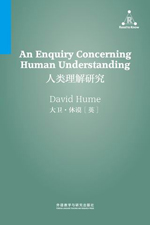人类理解研究
洪小霞
We may say that all ideas, especially abstract ones, are naturally weak
and vague; the human mind has no firm grasp of them; they are most
easily confused with other similar ideas; and when we have used any
term, it is easy to imagine that it has a definite idea attached to it,
though it has no clear meaning. On the other hand, all impressions, that
is, all feelings, both internal and external, are strong and active;
Their boundaries are more precise and definite, and in this respect we
are not liable to fall into the trap of error. Therefore, if we suppose,
as is common, that a philosophical term used by people has no meaning or
idea, we have only to ask, "From what impression does that
hypothetical idea come?" If we can't find any impression, this
confirms our conjecture. The subjection of ideas to such a clear view is
one which we may reasonably hope will relieve men of all arguments
concerning the nature and reality of ideas. P23
To reconcile the progressivity and contingency of human action with the
prophetic vision of God, to justify the absolute mandate of Heaven, and
at the same time to relieve the gods of their responsibility for sin,
has always been considered superior to all the powers of philosophy.
Reason, therefore, if it perceives its own audacity when it prays into
these sublime mysteries, must leave such vague and perplexing sights,
and humbly return to its real and proper domain, and examine everyday
life; If so, that would be very lucky. In everyday life, too, there are
difficulties enough for him to explore without plunging into such
boundless depths of doubt, uncertainty, and contradiction. P92




 京公网安备 11010802032529号
京公网安备 11010802032529号